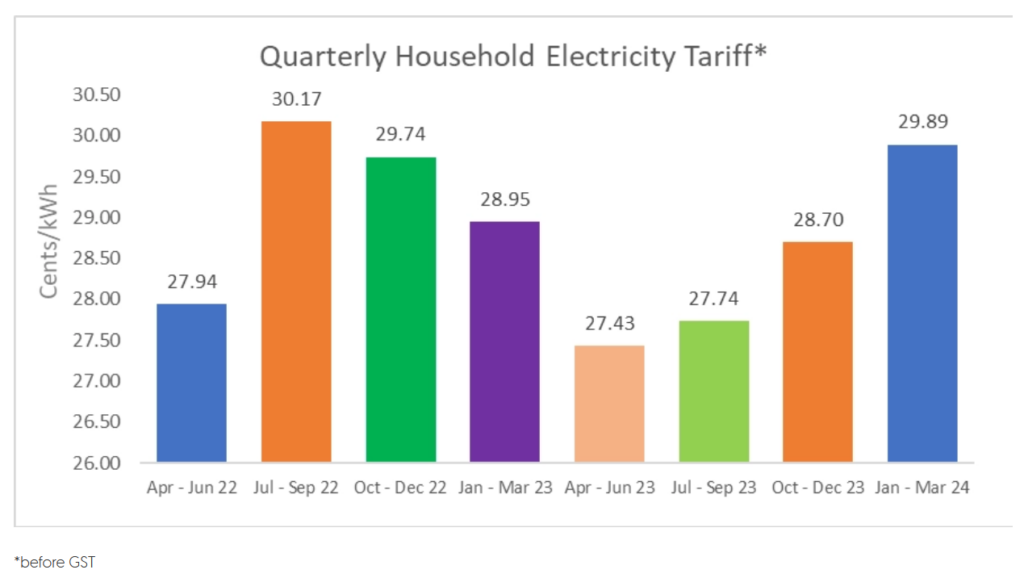Singapore’s Utilities Sector recorded an operating profit of S$7.2 billion in 2023, marking a 71.4% increase over the previous year. This surge was driven by a combination of increased revenue and reduced expenditure across key service segments.
According to data from SingStat released on 26 March 2025, total operating revenue in the sector rose by 4.7% to reach S$50.7 billion.
Meanwhile, operating expenditure contracted by 1.6% to S$43.5 billion, largely due to lower cost of sales in the Electricity, Gas, Steam and Air-conditioning Supply segment.
The sector, comprising about 845 establishments, delivers essential services such as electricity, gas, water, sewerage, and waste collection to more than 1.6 million residential, commercial and industrial customers across Singapore.
Based on this customer base, financial commentator Leong Sze Hian observed, “As there were more than 1.6 million residential, commercial and industrial customers, this works out to about S$4,500 per customer.”
A significant aspect of Singapore’s utilities landscape is its ownership and governance structure.
Major service providers such as SP Group and CityGas are wholly owned or significantly backed by Temasek Holdings, Singapore’s state investment company.
In parallel, PUB, which manages water supply, is a statutory board under the Ministry of Sustainability and the Environment.
This means that while some providers operate as government-linked corporations, others are directly governed by state ministries.
These structural arrangements mean that profits from the utilities sector ultimately accrue to the state, either as investment returns or under public financial management. However, this has also raised concerns among analysts and the public regarding affordability and pricing transparency.
The strong financial performance of the sector in 2023 coincides with rising utility costs. The PUB earlier announced an 18% increase in water prices, to be introduced in two phases in 2024 and 2025.
Electricity tariffs rose across three consecutive quarters in 2023, increasing from 27.43 cents/kWh in April–June to 28.70 cents/kWh in October–December, according to official data. The upward trend continued into 2024, reaching 29.89 cents/kWh in the first quarter.

This combination of high profitability and increasing customer costs raises questions over whether the pricing model appropriately balances fiscal responsibility with the public interest.
Critics argue that essential services such as electricity and water—often provided under monopolistic or limited-competition conditions—must be priced with care to avoid placing an undue burden on households and businesses.
The post Singapore’s Utilities Sector posts S$7.2 billion profit in 2023, profit per customer rises to S$4,500 appeared first on The Online Citizen.


